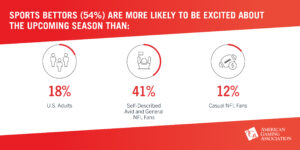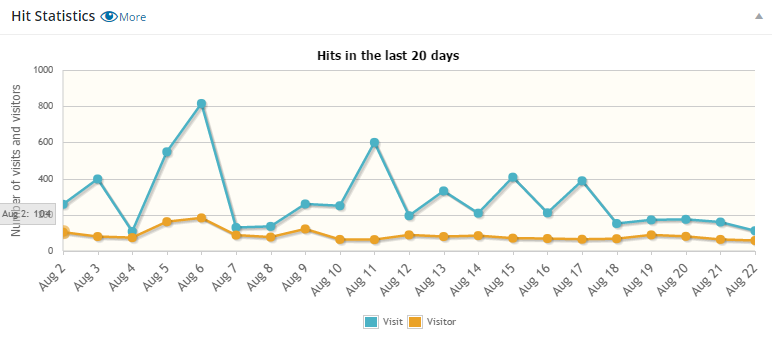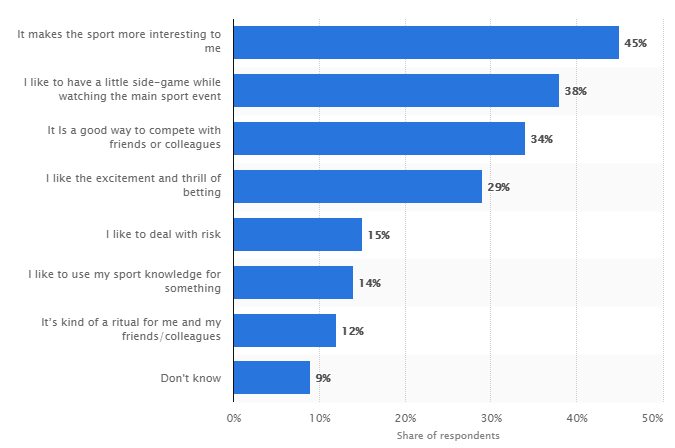Sports Betting Stats
Sports betting’s very nature is based on statistical principles. This is true for the odds that a sportsbook calculates and offers to you. It’s also true if you use a calculator or some form of software to estimate potential winnings.
Betting models, real-time odds and betting stats to quantify the true value of a betting opportunity. Leader in predictive sports data and analytics. Find all the latest sports betting stats at SportsBetting.ag's stats center. This is the place of all NBA, NCAAB, NHL, NFL, NCAAF, MLB betting statistics. NFL league leaders for 2020-2021 including top 5 against the spread (ATS), offensive, and defensive teams.
Principles Of Statistics In Betting
Statistics are everywhere in sports betting. Each bookie has its own set of statistics to operate with. You’re presented with various markets for all sports, and this is where statistics will come in handy.
You aren’t guaranteed to “cheat” or beat the sportsbook unless you are majorly blessed in the statistics department. However, you might as well try to better your understanding regardless of the outcome.
What Statistics Are Useful?
Statistics for calculating various aspects of sports betting are beneficial in understanding your bets. But this isn’t where statistics end; past event’s statistics are used as well.
You can use match records for sports like football to estimate your betting strategy or next wager. You can calculate how likely a team is to win, statistically what the goals or points scored will be and so on.
A common mistake that many punters make is not keeping a good record of all bets placed. You need to keep a precise track of wagers that you win as well as those you lose. If you don’t track winnings or lack thereof, you won’t have an idea of how well your strategy is working.
If you’re aware of how a selected strategy works and what to expect, then you can compare this with your actual results. This will enable you to sustain winning streaks better and apply your strategy successfully to future bets.

Odds are offered in various formats, as you’ve likely seen across sportsbooks. If you understand the odds being offered, then you can judge if the bet is being provided at its real value. You can read about the three types of odds below.
You’ll see American odds, also called money line odd across American sportsbooks and casinos. You’ll notice that there are UK betting sites that use British and decimal odds formats alongside this as well.
Either a +/- sign represents American odds. The ‘+’ sign indicates an event with lower probability but a bigger payout. The British odds are fractional, like 5/1 or in a ratio.
Lastly, decimal odds represent what you stand to gain for every 1 currency unit you wager. Your example could be odds for an event of 4.00, that’s a £/€/$400 payout for every £/€/$100 you bet. You have the option to switch between formats at a bookie, if you’d like.
You can use the following formulas to calculate your way through odds formats yourself.
- Fractional → Decimal: Solve the fraction and +1
- Fractional → American: If your answer is >=1 then x100(your answer) If your answer is <1 then -100/(your number)
- Decimal → Fractional: -1 and convert to a fraction
- Decimal → American: If the decimal is odd and >2 then 100x(decimal odd -1) If the decimal odd is <2 then -100/(decimal odd -1)
- American → Decimal: If the American odd is >0 then (American odd/100) +1 If the American odd is <0 then (-100/American odd)+1
- American → Fractional: If the American odd is >0 then American odd/100 If the American odd is <0 then -100/American odd
The designation of these betting formats represents probabilities. You should know that the best bookies by odds will also use these. You can convert between the formats on most sites.

You can then calculate the implied probability for the betting odds. This is an informed way to consider whether you should place a bet or not.
How to Calculate Statistics For Betting
You can easily calculate an implied probability of an outcome with the following formula:
Sports Betting Trends
Then you simply put the numbers into the formula, and it’ll give you a percentage. Remember though, it’s designed that the house will always win. A profit margin exists so that you won’t receive exactly what you expect in winnings.
Multiple regression analyses are conventional statistical calculations that bookies make use of, but we won’t go that deeply into how they work.
Next, you can read how odds are calculated with probability. In simplified terms, the probability is a scale from zero to one. The occurrence of a particular outcome occurring falls somewhere along that scale.
You can then choose your outcome, let’s say by rolling a die. You want to land on three, which is a single number; this is your favourable outcome. How many sides (six) are on a die will be all possible outcomes.
Next, you just divide the two, so 1/6, which gives you odds of 0.16. To convert this back to probability as a percentage, only x100. You can even use statistics to calculate your expected payout for a successful bet.
Payout is quite easy to calculate as you multiply your stake by the odds offered. If you place a bet for say, £/€/$10 on 3.00 decimal odds, the expected payout is £/€/$30.
Understanding and applying these statistics to your sports betting is a crucial step to becoming a better bettor. You can even start to model your strategy based on the statistics and odds available.
Disadvantages Of Relying On Statistics
Before you go on calculating sports stats, heed our words of warning. You’ll likely have a better chance at succeeding with sports bets if you take statistics into account when you bet. However, you must be aware that statistics are only one side to betting, and you can’t solely rely on them. You must be aware that there are other factors to be considered in sports betting alongside statistics.
You should note as well that statistics don’t factor in any outside factors. This means that you won’t always be placing statistics in the right context.
Estimated Read Time: 3 minutesSee All Guides
Based on the size of the global sports betting market, it’s no surprise that there are tons of sites offering databases and trend analysis for sports betting. Some sites provide their raw data for free. Others charge for their databases and provide exclusive commentary and proprietary analytic tools.
By combing through past sporting events and familiarizing yourself with different trends, you can gain invaluable insight into predicting the future and become highly successful sports bettor.
What Is the Best Free Sports Stats Database?
SBD Sharp
You’ll have to excuse us for including our own product on this list, but we wouldn’t have created this tool if we didn’t think it offered massive benefits to bettors. SBD Sharp looks at sports statistics a bit differently, tracking teams over time to determine their standing value as investments and to help you predict how they’ll perform in specific scenarios.

SBD Sharp will help you identify which teams offer the greatest return on investment as moneyline, point spread, or totals bets. You can look back at each team’s past records to see how much money you could have made betting on every individual game or the season as a whole.
Sharp tells you not only which games each team has won or lost. It tells you when you would have profited betting on them, and how much you would have made. It’s a betting trend analysis tool, and it’s an ideal solution for those who want to track sports bets and teams as investments over time.

You can choose from a number of formats to display the data, and filter the results by the following criteria to show you the best teams to bet on: at home, when away, as favorite, as underdog, as home favorite, as home underdog, as road favorite, and as away favorite. Handicapping is all about finding statistics and information that tells you how a team is likely to perform in very specific situations.
Evaluating these trends over the course of a season is a great way to predict what’s likely to happen the next time your team faces similar conditions.
FiveThirtyEight
Some of the sharpest statisticians in the industry work at FiveThirtyEight. Nate Silver (who has appeared on Time Magazine’s’ Top 100 Most Influential People in the World issue) started FiveThirtyEight to write on, analyze, and predict NBA games with an advanced form of statistical analysis by the name of sabermetrics. Nate Silver’s brainchild has applied world-class statistical methodology to predict the future of everything from federal elections to the winner of the Super Bowl.
Not only does FiveThirtyEight make all of their data publically available (thanks for their firm belief in transparency), but they offer a predictive model for both the NBA and the NFL. They employ two different systems: “ELO” and “CARMELO” rankings.
Nate Silver describes them as follows:
“Elo ratings are a measure of team strength based on head-to-head results, margin of victory and quality of opponent, while our CARMELO projections estimate a player’s future performance based on the trajectory of other, similar NBA players.”
Nate Silver created the CARM-Elo model with a combination of both the ELO ratings and CARMELO projections. As a forecast model, the CARM-Elo system projects results based on a team’s roster, as well as historical game results. The CARM-Elo model is predicated on over 50,000 simulations of the remainder of the season, and it takes fatigue, home courts in higher altitudes, even distance traveled to games into account. Additionally, when it comes to predicting the playoffs, the CARM-Elo model also gives a small bonus to teams with significant playoff experience.
This is a great model and one that we recommend integrating into your sports bets. Correct more often than not, it’s also free, simple, and efficient. Plus, few have ever found a way make data more aesthetically appealing and exciting than the fine folks at FiveThirtyEight.
What Is the Best Subscription-Based Sports Stats Database?
Killer Sports
Sports Betting Stats Matchups
Killer Sports is free (although you can purchase other people’s trends on the platform), and in our opinion, it’s one of the best available databases to sports bettors. In the past, the only people who had access to the same extensive data either worked at conglomerates like ESPN or paid thousands of dollars for programs that had to be updated every day.
Now, Killer Sports offers its patented SDQL (Sports Data Query Language) to anyone who subscribes to their services. It is undoubtedly the most comprehensive database available to the public.
What makes Killer Sports SDQL database so revolutionary? It allows users a unique opportunity to build and save their own trends, access team comparison tables, and access statistics that no other database currently offers their subscribers. The possibilities of what you can with Killer Sports data are limitless.
With their weekly reports on new emerging trends in their SDQL database, it’s impossible not to see why Killer Sports is a favorite of “sharps” everywhere.
Which Sports Stats Service Should I Choose?
If you’re just starting out, we advocate sticking with the free services. Once you start developing your identity as a sports bettor and get accustomed to the nuances of sports betting a subscription service will help you gain a valuable edge over your sportsbook.